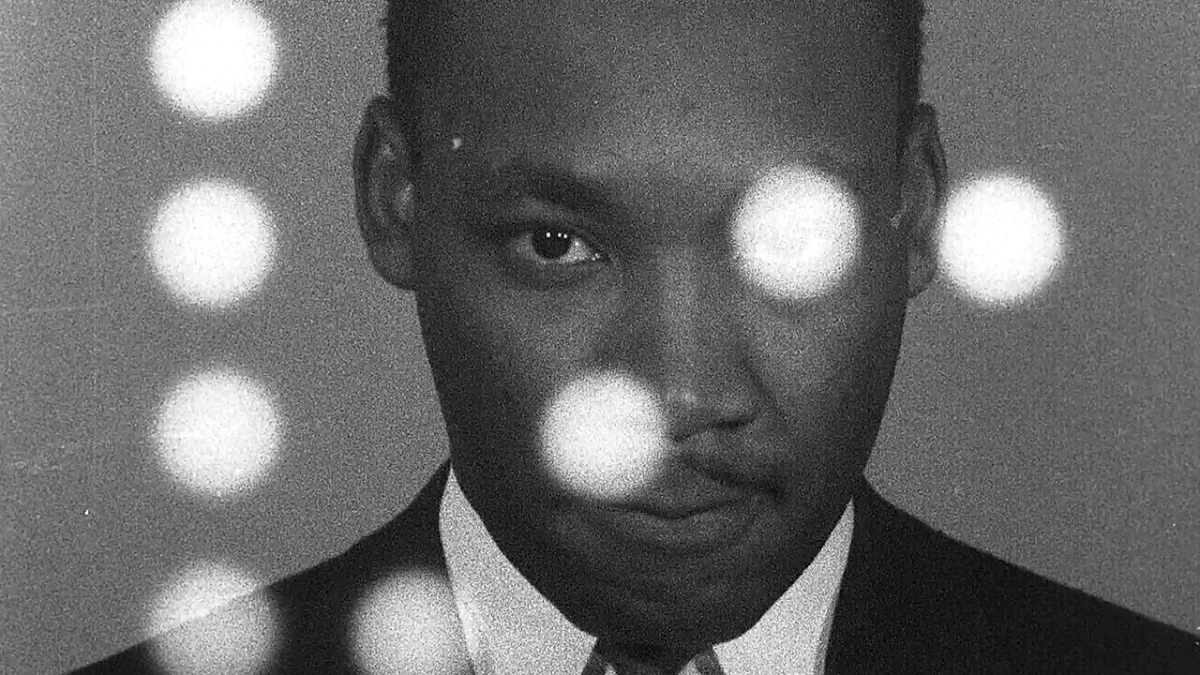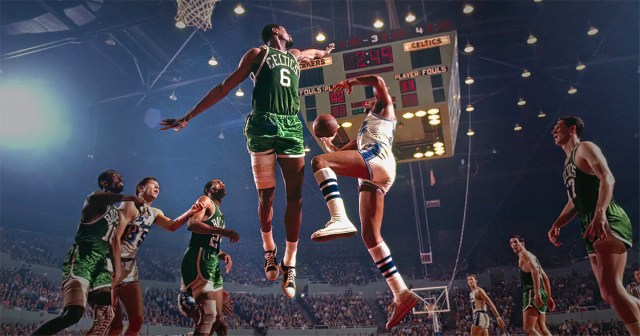Remembered today as an American hero, Dr. Martin Luther King Jr. is lauded as a bridge-builder, a shrewd political tactician and a moral leader. Yet throughout King’s history-changing political career, U.S. intelligence and law enforcement agencies often treated him as an enemy of the state. MLK/FBI, the new documentary feature from Emmy Award-winning editor and director Sam Pollard (Two Trains Runnin’), is the first film to uncover the extent of the FBI’s surveillance and harassment of the civil rights icon.
Based on newly discovered and declassified files utilizing a trove of documents obtained through the Freedom of Information Act and unsealed by the National Archives, as well as revelatory restored footage of King, the documentary explores the government’s history of targeting Black activists and the contested meaning behind some of the country’s most cherished ideals. Featuring interviews with key figures, including former FBI Director James Comey, MLK/FBI is an astonishing and tragic story with urgent relevance today.
“MLK/FBI… speaks directly to the dissonance between our popular memory of the civil rights movement and its complicated history,” Christopher Wilson writes in Smithsonian Magazine:
“The story of the FBI’s campaign against King has clear and sobering relevance today. It reminds us of the danger of a powerful, unchecked and flawed demagogue like [Herbert] Hoover using his office to impose his own views on society and to enforce them with scurrilous and lawless methods. It speaks to the effect that that sort of rhetoric can create bias and scorn, whether terms like ‘communist’ or ‘Antifa.’ It also shows the power of elements of American culture like Hollywood films and television as complicit in the oppression of black Americans through the romanticization of an institution like the FBI.”
READ MORE: A New Film Details the FBI’s Relentless Pursuit of Martin Luther King Jr. (Smithsonian Magazine)
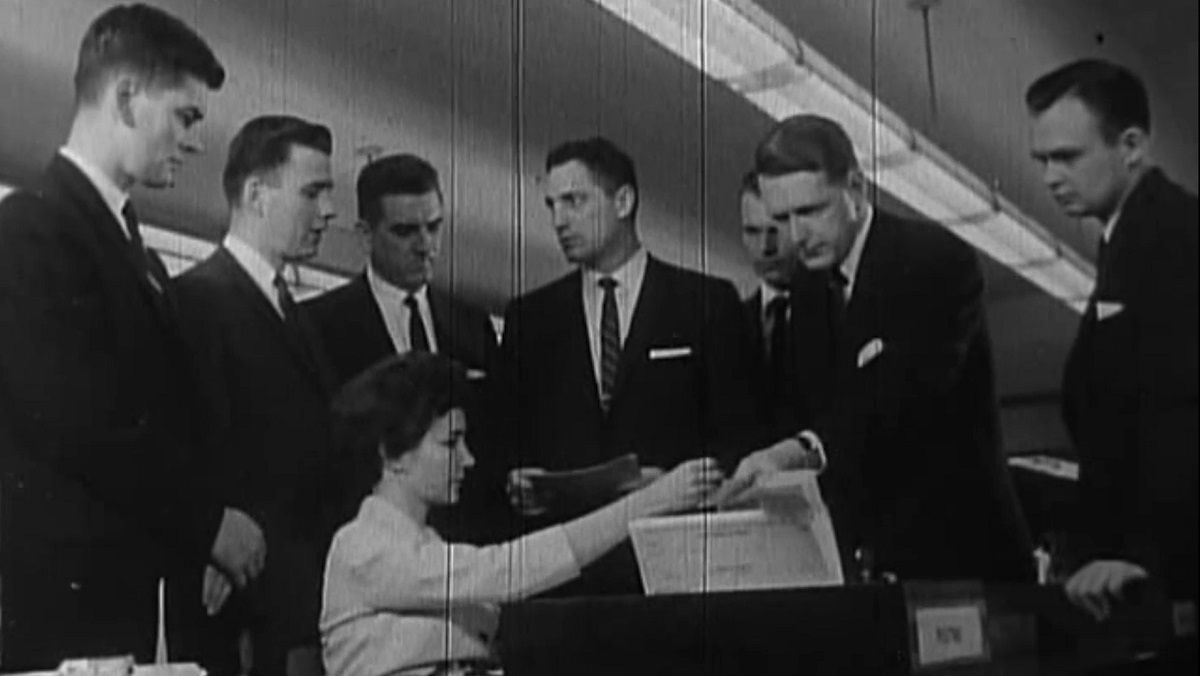
MLK/FBI documents what The Atlantic’s Hannah Giorgis calls the “tangled chain of events” that led to the FBI’s accidental discovery of King’s extramarital affairs and the agency’s subsequent surveillance program. “By the end of 1963,” she writes, “the bureau actively sought recordings of King having sex with his various girlfriends, in hopes of exposing him as a hypocrite and suppressing the civil-rights movement in the process. The FBI wasn’t just seeking to defame King using details from his private life. The bureau officials’ rush to cast aspersions on the reverend was both strategic and ideological. The documentary shows that they believed revealing King’s indiscretions would damage his — and the movement’s — claim to a moral high ground.”
READ MORE: When the FBI Spied on MLK (The Atlantic)
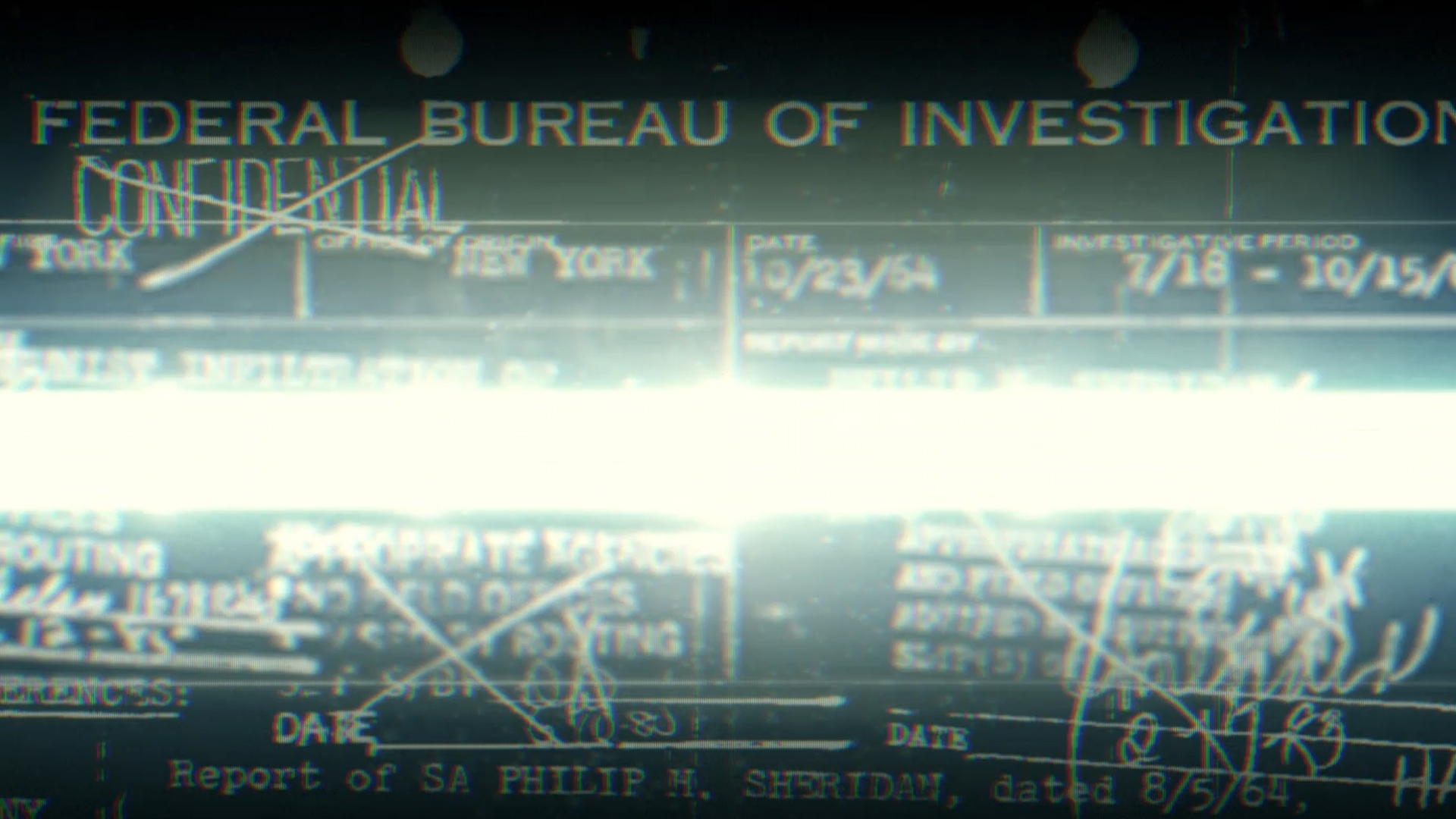
One of the most striking elements of MLK/FBI is its use of archival footage interspersed with playful film clips, accompanied by voice-over interviews.
“The idea of having nobody on camera was something that I had been inspired by with a film called The Black Power Mixtape 1967-1975, which I had seen around 2011,” Pollard said in an interview with Tracie Lewis for Documentary Magazine:
“That director, a Swedish director [Göran Olsson], had phenomenal archival footage from the ‘70s and everybody was commenting on it off-camera — Angela Davis, Harry Belafonte, and others. That had always stayed in my mind. I said to my producer on this film, Ben Hedin, that when we do this film, I want to do that. I don’t want us to have anybody on camera. I want people to become immersed in the material, the archival footage, from the March on Washington to the last evening of Dr. King’s life when he was in Memphis, Tennessee.”
Pollard was also inspired by Hollywood movies that glorified the FBI, giving editor Laura Tomaselli a list of films to mine for clips, including Walk a Crooked Mile, I Was a Conman for the FBI, Big Jim McClain, The FBI Story with Jimmy Stewart, and what Pollard calls “that seminal series on ABC in the ‘60s,” The FBI, with Efrem Zimbalist Jr. “[Using] old movie clips was an idea I had because I was very familiar with how the FBI had been used by these old feature films and how the FBI was part of them, creating their own myth,” Pollard told Lewis.
READ MORE: ‘MLK/FBI’ Explores the Complexities of the Civil Rights Icon (Documentary Magazine)
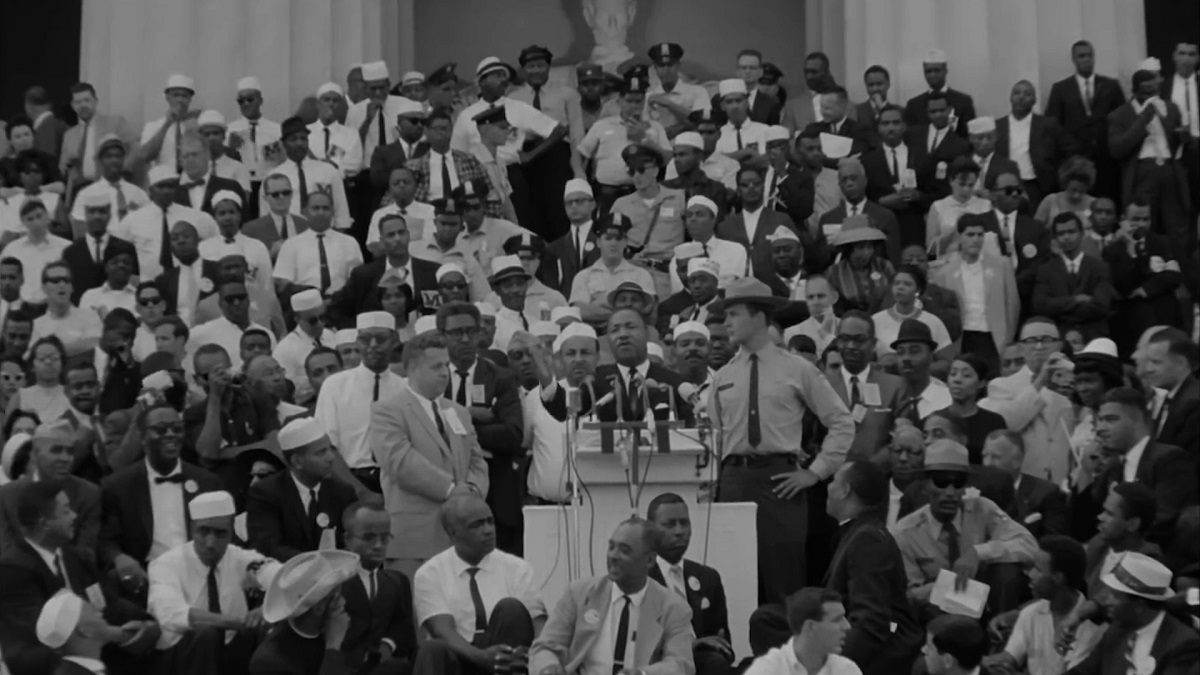
“Sam and I were both inspired by a lot of the archival-only docs,” Tomaselli noted in an interview with Kenny McMillan for the ProVideo Coalition. “There’s a great old one of King that won the Oscar called A Filmed Record: From Montgomery to Memphis, and that’s like our direct predecessor, but he also really liked The Black Power Mixtape…. We really felt like telling the story through archival so that it was fully immersive.”
Working alone in her home in upstate New York throughout the pandemic, Tomaselli had more than 300 hours of archival footage from which to assemble a rough cut, much of it sourced by archivist Brian Becker. In the absence of a script or outline, David Garrow’s book “The FBI and Martin Luther King Jr.” became a jumping-off point.
“In terms of finding the story it was really like whittling it down on all sides,” Tomaselli said to McMillan. “It was both what we had from these like really great interviews, and then Brian, our wonderful archivist, would pull something in and we would just be like, ‘Oh my God, this has to be a thing.’ You know, it was kind of coming at us from all sides, if that makes sense.”
READ MORE: Editing MLK/FBI with Laura Tomaselli (ProVideo Coalition)
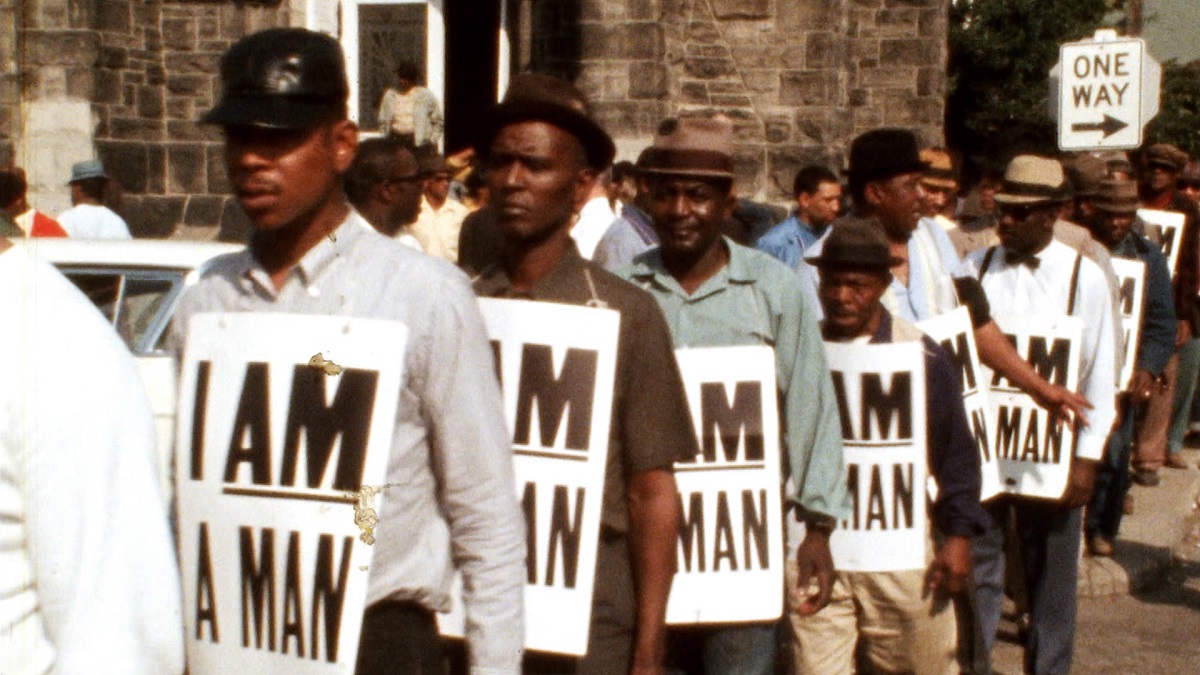
“As an editor myself, one of the things I respect about working with other editors is giving them the room to create and to shape, giving them the framework and walking away and saying, ‘Go for it.’ And I did that with Laura,” Pollard said in an interview with Caleb Hammond for MovieMaker magazine. “She’s got good, strong opinions, and we didn’t always agree, but I respect editors and respect that what she was going to bring to the table was going to challenge me and advance the project, step it up — which she did constantly on every level. From the archival footage, to the clips we used from the feature films, to the interviews we had done.”
Tomaselli especially appreciated the notes Pollard provided, which came with his wealth of experience in the edit bay. “The notes Sam and Ben sent through were so either targeted and specific, or made sense to me. Ben [Hedin], our producer, is a writer, and Sam is an editor, so the notes I would get wouldn’t be like, ‘We need to make it more lively,’” she explained.
“Being an editor and having your director be such an incredible editor like Sam, it’s pretty rare,” Tomaselli told Hammond. “One of the toughest parts about editing in general is finding the right materials, and Sam has an encyclopedic film knowledge from that era of those older ‘red menace’ films that we started playing with for texture in the beginning. So he was able just to give me the films that he knew immediately would work. So I wasn’t watching a ton of stuff. I already had the best stuff.”
READ MORE: MLK/FBI Director Sam Pollard and Editor Laura Tomaselli on Building a Fruitful Working Relationship (MovieMaker magazine)
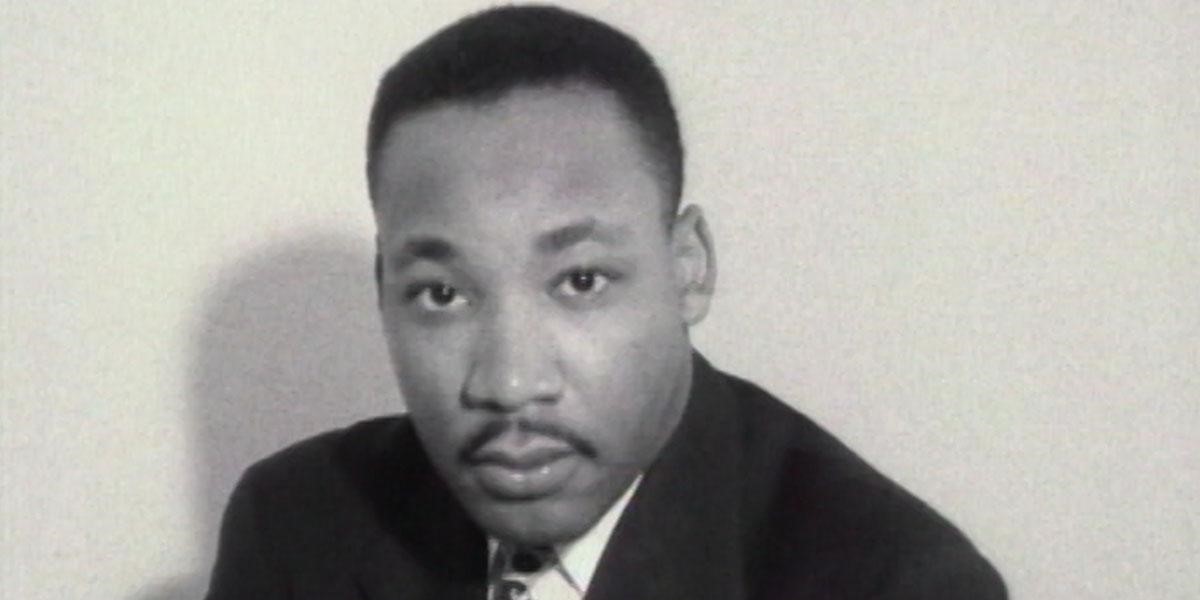
Speaking to Sam Briger for NPR’s “Fresh Air,” Pollard readily acknowledges that while Hoover’s gambit to undermine King’s credibility ultimately failed, his personal life would have received intense public scrutiny in today’s media climate.
“Now, what [Hoover] didn’t bank on was back in the ‘60s, as you well know, the press did not take the bait. They did not take the bait. They did not reveal the personal lives of these public figures. I mean, they didn’t do it with John Kennedy, they didn’t do it with others, and they didn’t do it with Dr. King. I mean, somehow, he just thought, well, here’s a Black man who’s supposed to be this upstanding minister, and, you know, this is material that can be used to destroy him. And they didn’t take the bait. The press did not take the bait.
“Now here we are in 2021. It would’ve been all over the paper, all over the social media, everywhere, you know? But the thing that I’m amazed by is even with the idea that the press now picks up on all the scandalous stuff of people’s lives, there are people whose lives have been so scandalous and so projected in the news and social media and it still hasn’t had much impact. I mean, look at all the stuff that’s come out about Trump, you know? And none of it has stuck – none of it.”
READ MORE: Documentary Exposes How The FBI Tried To Destroy MLK With Wiretaps, Blackmail (NPR)
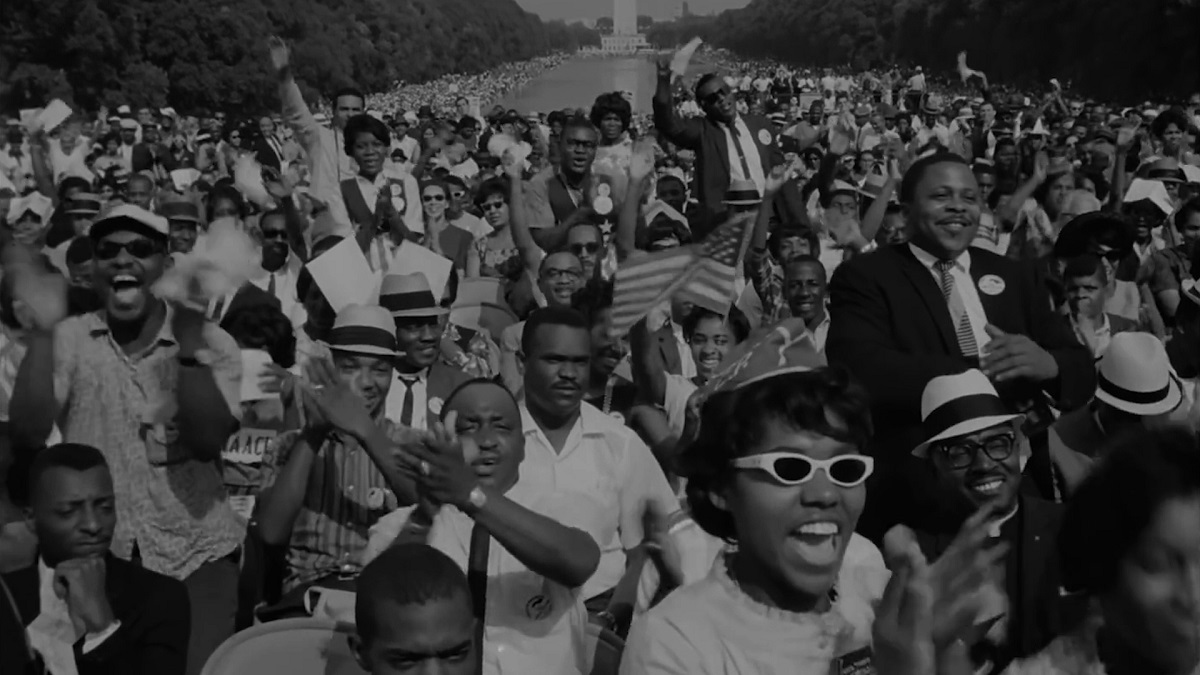
Want more? Listen to the full interview with Pollard in the player below:


